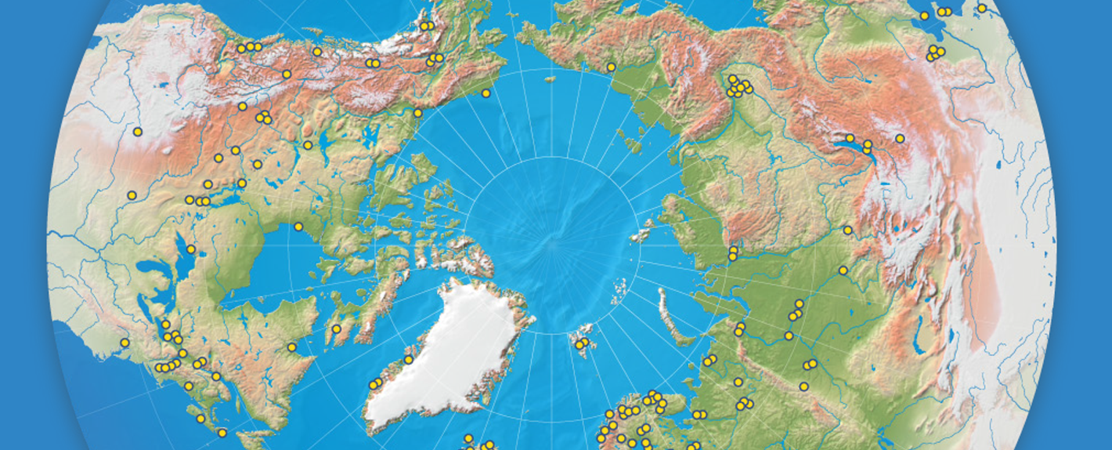UArctic Annual Report for 2015: Greater Research Cooperation and Increased Collaboration

UArctic’s vision is “An Empowered North – With Shared Voices,” underlining that all northerners must have a say in their own future and that of the region as a whole. Our mission to “Empower the people of the Circumpolar North by providing unique educational and research opportunities through collaboration within a powerful network of members” reinforces that aim.
In 2015 planning began in earnest for the first ever UArctic Congress, which is held in St. Petersburg, Russia in September 2016. The initial call for session proposals launched in late 2015, with themes taken from the International Conference on Arctic Research Planning (ICARP III) process. The call produced an excellent response and resulted in a high quality scientific program and other events. The Congress is the first time that all UArctic bodies – Rectors’ Forum, Board of Governors, Council and Thematic Networks – meet together in the same location.
With financial support from the Norwegian Ministry of Foreign Affairs, UArctic helped mark the occasion of twenty years of the Arctic Council by developing a special edition of our Shared Voices magazine. This special issue looks back at the Arctic Council’s past successes and where it is headed. The project culminated at a special event at Arctic Frontiers in January 2016. See uarctic.org/sharedvoices.
In response to increased interest from our members in greater research cooperation within the network, we developed new tools and initiatives to better serve members and individual researchers. One such example is the new Research Infrastructure Catalogue – an online database of our members’ infrastructures and facilities. Additionally, a Research Analytics Task Force was developed and implemented, to better track our members collective research outputs. UArctic also participated in the Arctic Council’s Scientific Cooperation Task Force and process for ICARP.
UArctic’s Student Ambassador Program is a select group of student leaders who represent UArctic and their home institutions, and promote the network and its activities among their peers both online and in high profile events. The first group of Student Ambassadors met in a four-day training workshop in Tromsø, Norway in connection with the Arctic Frontiers conference in 2015. The workshop included briefings on UArctic, training sessions and meetings with a large number of global leaders, including Prince Albert II of Monaco, then Prime Minister of Finland Alexander Stubb, and US Special Representative for the Arctic Admiral Robert J. Papp, Jr.
Major UArctic meetings in 2015 included a very memorable Council meeting hosted by Buryat State University in Ulan-Ude, Buryatia, Russia, which was followed by an international scientific conference. UArctic’s leadership met during the Rectors’ Forum at Umeå University, Sweden for strategic talks on various issues including strengthening academic mobility and a framework for cooperation in conducting Arctic research.
Our Thematic Networks expanded with six new additions in 2015: Arctic Telecommunications and Networking, Working in the Arctic, Model Arctic Council, Northern Nursing Education, Teacher Education for Social Justice and Diversity in Education, and UArctic World Ensemble. These networks have already been very active; an example is the Model Arctic Council event organized at the Arctic Science Summit Week in Fairbanks in March 2016. The first Arctic Massive Open Online Course (MOOC) was also launched through a collaboration of UArctic partner institutions.
UArctic’s engagement with non-Arctic countries increased in 2015, demonstrated by the growth in UArctic membership from outside the Arctic countries, particularly from China. There are now a total of 22 non-Arctic member institutions. Concrete initiatives with non-Arctic partners such as the Korea Arctic Academy, organized by UArctic and Korea Maritime Institute, demonstrate the value of this cooperation.
UArctic continues to draw strong leaders from its member institutions. In 2015 we welcomed Gerald Anderson as our Vice-President Indigenous, and Sheila Downer as Vice-President Finance, Development and Engagement, both from Memorial University of Newfoundland.
